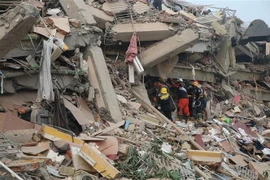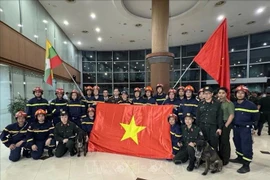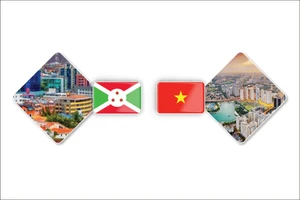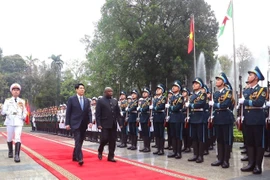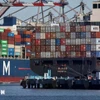Hanoi (VNS/VNA) - The recent earthquake in Myanmar has compounded the already difficult business environment for Vietnamese enterprises operating in the country, according to the Vietnam Trade Office in Myanmar.
After a powerful 7.7 magnitude earthquake in Myanmar on March 28, all Vietnamese businesses were reported safe, but trading activities will face significant obstacles, the trade office said.
The earthquake affected not only Myanmar but also shook several cities in Vietnam. As of March 29, the latest figures reported by Myanmar’s authorities indicated that the earthquake had left 1,002 people dead, 2,376 injured, and 30 missing. This toll could rise as authorities continue to assess the full extent of the damage.
The quake also caused massive infrastructure damage, disrupting power supplies and telecommunications networks. In Yangon, some areas experienced a loss of mobile signal, and several buildings sustained significant damage. Emergency rescue efforts are underway, but the scale of destruction is vast.
The recent tremor is just one of the many challenges Myanmar is facing. The country has long been dealing with political instability, conflict and a fragile economy.
According to Nguyen Duong Kien, Trade Counsellor of the Vietnam Trade Office in Myanmar, infrastructure damage, such as collapsed walls and power outages disrupting telecommunications, will undoubtedly create further barriers to trade between the two nations.
Myanmar is already grappling with a political crisis that has left more than half of its 330 townships embroiled in conflict.
Travel between regions has become increasingly difficult, leading to sky-high logistics costs and further complicating business operations. The ongoing instability and conflict have led to the closure of several customs stations along the Myanmar-China and Myanmar-Thailand borders, further restricting trade.
Myanmar’s economy, already fragile due to years of internal conflict, is now facing even greater setbacks. Power shortages are frequent, with many industrial zones having power for only four hours per day.
This lack of consistent power supply forces businesses to rely on expensive generators, driving up operational costs.
Given these challenges, Myanmar’s economic recovery in the short term looks increasingly unlikely.
Vietnam’s trade with Myanmar has already been on the decline, and the earthquake is expected to exacerbate this trend.
In 2024, the two-way trade turnover between the countries was reported at 574 million USD, a 16% decrease from 2023.
The first two months of 2025 saw an even steeper decline, with a 29% drop in total import-export turnover, amounting to just 72 million USD. Vietnam mainly exports textiles and garment materials, footwear, fertilisers, plastics and other products to Myanmar.
The decline in trade can be attributed to several factors, including Myanmar's ongoing import restrictions as well as the fact that most goods must have import licences. These licences are difficult to obtain due to complex internal procedures, further hindering the flow of goods.
Many Vietnamese companies have been forced to export their goods through Thailand before transporting them across the border to Myanmar. This significantly raises costs, as these shipments are not officially counted as exports from Vietnam to Myanmar.
The difficulties of doing business in Myanmar have led the Vietnam Trade Office in Myanmar to caution Vietnam's exporters.
Kien emphasised the importance of closely monitoring the situation and maintaining communication with the trade office and other relevant agencies.
He also highlighted that, due to strict foreign exchange controls and increased sanctions by the United States and the European Union, Vietnamese businesses should exercise caution in their dealings with Myanmar.
Kien recommended that Vietnamese companies ensure they comply with the country’s policies and guidelines for conducting trade in Myanmar.
He also urged businesses to adopt safe payment methods, as many Myanmar enterprises are facing financial difficulties and the risk of financial transactions being delayed or blocked.
Despite these challenges, the Vietnam Trade Office remains committed to supporting Vietnamese businesses in Myanmar.
The office plans to organise the Vietnam-Myanmar Trade Fair in 2025, providing a platform for Vietnamese companies to explore new business opportunities in Myanmar and better understand the market dynamics./.
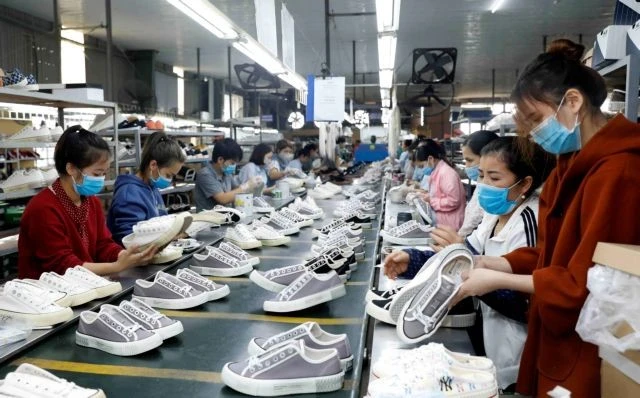
See more
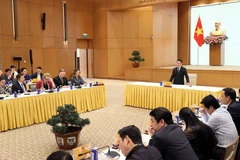
Vietnam seeks US's delayed imposition of new tariffs for negotiations: Deputy PM
The Deputy PM also called on the American Chamber of Commerce (AmCham) in Vietnam and the US-ASEAN Business Council to convey the message of goodwill from the Vietnamese Government and business community to President Donald Trump’s administration to foster effective talks that could further reinforce the Vietnam-US comprehensive strategic partnership.

Vietnam sets up task force to cope with US economic, trade policy shifts
The task force has been assigned with assisting the PM in closely monitoring global and regional developments, particularly the adjustments in the US’s economic and trade policies.
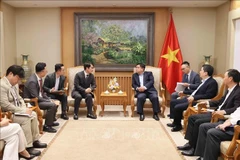
Deputy PM pledges strong support for Korean investors
Amid complicated developments of the global and regional situation, especially increasing risks of trade wars, Deputy Prime Minister Nguyen Chi Dung reaffirmed Vietnam’s commitment to maintaining political and socio-economic stability, building an independent and self-reliant economy while proactively pursuing extensive, substantive, and effective global integration.
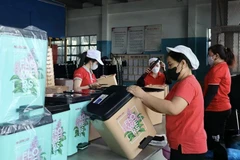
HCM City to boost support for businesses amid US tariff concerns
In response to the new situation, many enterprises in HCM City said that they are proactively exploring new markets beyond the traditional US market while diversifying their product offerings tailored to various customer segments across different countries.
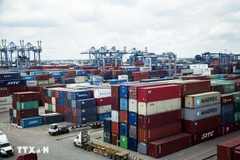
HCM City's Q1 growth hits five-year high, but still below expectations
The 7.51% growth in Q1 was an encouraging sign, but this figure also indicates numerous challenges to the city's efforts to achieve its annual growth target of 8.5–10%.
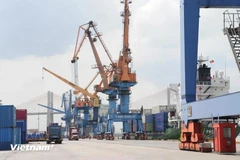
Vietnam advised to flexibly adapt to newly US tariff policy
Vietnam should continue bilateral negotiations with the US administration on major export commodities while guiding businesses in diversifying markets, attracting more US investments, and increasing purchases of goods from the US, an analyst has said.
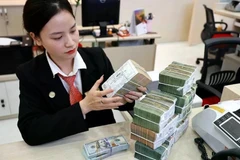
Reference exchange rate rises sharply on April 4
The daily reference exchange rate for the US dollar increased 32 VND from the previous day to stand at 24,886 VND/USD on April 4.
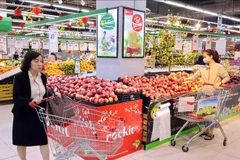
Hanoi keeps CPI well under control
The CPI for the first quarter of 2025 increased by 2.75% compared to the same period last year, indicating that inflation remains well under control.

Central bank’s credit growth target helps real estate recovery
Experts said a large portion of this influx of cash will likely flow into promising investment avenues like real estate and securities, especially given the current volatility in the gold market.
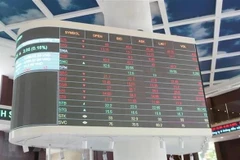
Vietnam to launch KRX trading system on May 5
The KRX system is currently in its final testing phase before full implementation. During this period, securities firms are conducting simulated trading sessions as if on a normal trading day.
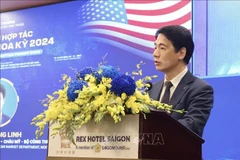
Room remains for Vietnam-US tariff talks to secure win-win benefits: official
Minister of Industry and Trade Nguyen Hong Dien has sent a diplomatic note requesting US authorities delay the tariff imposition to allow for constructive dialogue to seek a reasonable solution for both sides.
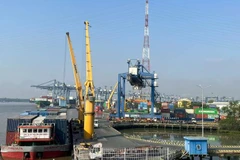
Vietnam reviews, adjusts import tariffs to promote trade balance
The Ministry of Finance is now working closely with other agencies to evaluate policy options that support businesses. Possible solutions include market diversification, supply chain optimisation, and leveraging opportunities from Vietnam’s existing free trade agreements.
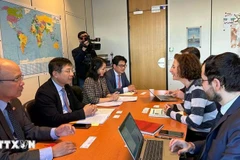
Vietnam learns from France's experiences in carbon market management
Vietnam plans to launch a pilot carbon trade exchange in June, and officially operate and connect it with regional/international floors in 2029.
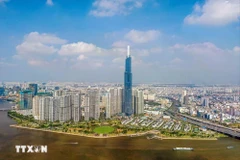
PM demands specific, competitive policies to develop int’l financial centres
PM Pham Minh Chinh stressed that it is necessary to build modern, digitally advanced financial centres with smart operation and management systems as well as high-quality human resources.
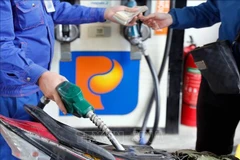
Retail petrol prices up in latest adjustment
Under the new pricing structure, E5 RON92 and RON95-III have increased by 341 VND and 495 VND per litre to a maximum of 20,373 VND (0.79 USD) and 20,919 VND per litre, respectively.
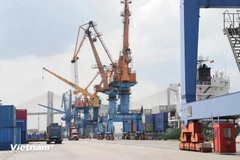
Businesses need to respond flexibly to minimise impact of US new tariffs: insiders
Businesses should proactively diversify their export markets in order to prepare for unexpected events in the context where there is a trend of trade liberalisation, alongside a rise in protectionist measures, and increased technical and trade barriers in major markets.
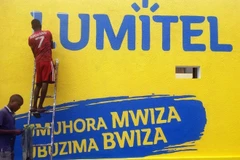
Lumitel – A bright spot in Vietnam-Burundi collaboration
After a decade of operations, Lumitel has become the leading telecommunications provider in Burundi and one of the largest contributors to the Burundian government's budget, providing stable employment for over 60,000 workers and indirectly creating around 100,000 jobs.
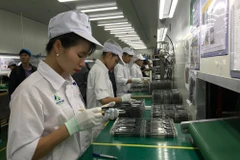
Vietnam’s trade shines as a pillar of economic growth
This robust performance, representing an additional 12 billion USD compared to the same period last year, underscores trade's resilience amid global economic uncertainties.
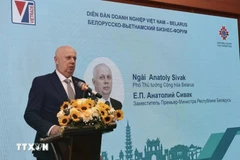
Ample room remains for Vietnam - Belarus trade cooperation
To further develop the Vietnam-Belarus economic and trade relationship, it is essential to enhance trade promotion and investment initiatives such as trade fairs, forums, thematic workshops, and trade connections, which serve as an important bridge for businesses from both sides to meet, connect, and seek cooperation opportunities.
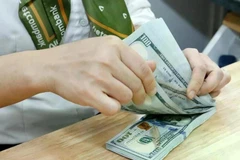
Reference exchange rate up 3 VND on April 3
The State Bank of Vietnam set the daily reference exchange rate for the US dollar at 24,854 VND/USD on April 3, up 3 VND from the previous day.
